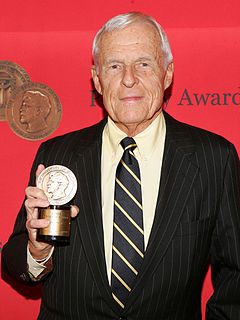A Quote by Anton Chekhov
Not one of our mortal gauges is suitable for evaluating non-existence, for making judgments about that which is not a person.
Related Quotes
For many activities, people cannot rely solely on themselves in evaluating their ability level because such judgments require inferences from probabilistic indicants of talent about which they may have limited knowledge. Self-appraisals are, therefore, partly based on the opinions of others who presumably possess evaluative competence
A prejudice may be an unreasoned judgment, he [Hibben] pointed out, but an unreasoned judgment is not necessarily an illogical judgment. ... First, there are those judgments whose verification has simply dropped out of memory. ... The second type of unreasoned judgments we hold is the opinions we adopt from others ... The third class of judgments in Professor Hibben's list comprises those which have subconscious origin. The material that furnishes their support does not reach the focal point of consciousness, but psychology insists upon its existence.
Are we our bodies? Is a small person less than a big person, then? If we were our bodies, then when we lost an arm, or a leg, would we be less, would we begin to fade from existence? No. We are the same person. We are not our bodies; we are our thoughts. As they form, they define who we are, and create the reality of our existence.
In our Mechanics' Fair, there must be not only bridges, ploughs, carpenter's planes, and baking troughs, but also some few finer instruments,--rain-gauges, thermometers, and telescopes; and in society, besides farmers, sailors, and weavers, there must be a few persons of purer fire kept specially as gauges and meters of character; persons of a fine, detecting instinct, who note the smallest accumulations of wit and feeling in the bystander.
A practice that is suitable for one person is not necessarily suitable for someone else, and a practice that is appropriate for one person at one time is not necessarily appropriate for that same person at another time. Buddha did not expect us to put all his teachings into practice right away--they are intended for a great variety of practitioners of different levels and dispositions.
This mortal probation is a brief period-just a short span, linking the eternity of the past with the eternity of the future. Yet it was to be a period of tremendous importance. It is, in fact, the most vital period of our entire eternal existence. In this mortal state we come face to face with innumerable temptations and pressures. Sometimes we come in contact with advocates of wrongdoing, disobedience, and sin. Lucifer is going about tempting those who can be tempted to see if he can lead them astray.
Our decisions need not be seen as resting on procedures that are merely instrumental in making judgments that are reliably truth-tracking. The procedures might be more directly related than that to truths about what is right or good, or about what we ought to do, or to principles that tell us what is true about these matters. And I have no metaphysical theory about the truth-conditions of such truths, except to say that as objective truths, they must be independent of the attitudes, decisions or actions that they are supposed to justify or for which they are to offer reasons.
The spirit, if it could be seen with mortal eyes, would appear in bodily shape like a full-grown person with individual endowments that make it a counter-part of the body in which it [resides,] "that which is temporal in the likeness of that which is spiritual." (D&C 77:2.) It was that which came from God and entered at birth into the infant body prepared by its mortal parents. The spirit was of the "Lord from heaven." The physical body was "of the earth, earthy," (2 Cor. 15:47) or in other words, composed of the elements of which the things in the physical world are composed.




































